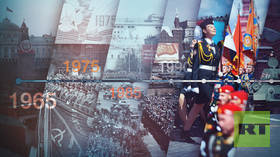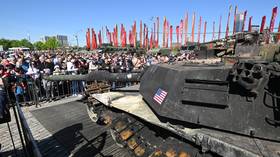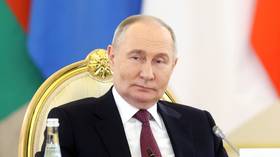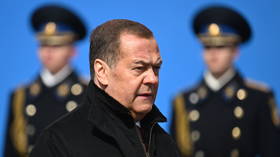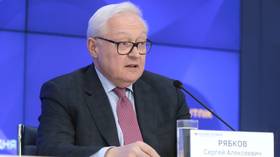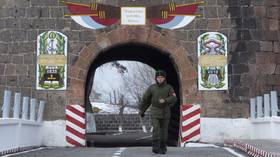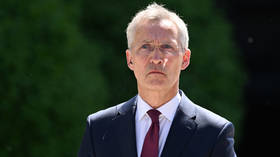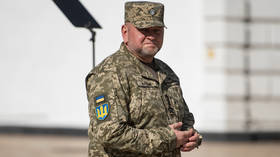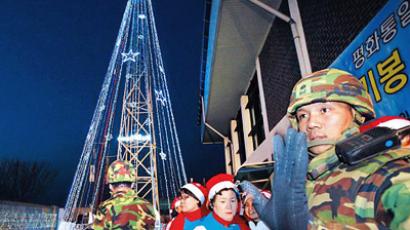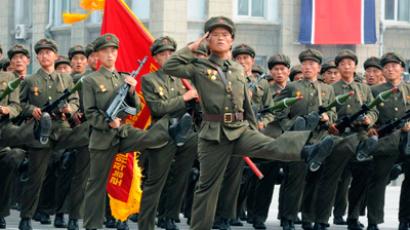Unusual aid: socks to save lives in North Korea
An unusual form of humanitarian aid has been sent to impoverished North Korea by means of giant balloons, an increasingly popular way to try and communicate with people in the isolated communist state.
Some 50 members of the Seoul-based North Korea Peace aid group – along with supporters from the US, UK, Japan and South Africa – gathered Saturday on the outskirts of Paju, 3 kilometers from the world’s most heavily fortified border, to send about 1,000 pairs of warm socks – which they say are in critically high demand in the North.
It may seem trivial at first, but according to the activists the socks can help struggling North Koreans survive both cold and hunger.And, “they can be exchanged for 10,000 North Korean won,” activist Sunnie Kim told RT, explaining that such a sum is enough to buy 10 kilograms of corn."Warm socks are a critical necessity in North Korea during the winter months, almost as much as food," said the event's coordinator, North Korean defector Lee Joo Sung. In winter, temperatures in North Korea can drop as low as -30 degrees Celsius.The group says its aim is to bring more international attention to the increasing need for foreign aid in North Korea. They plan to send packages with socks attached to balloons every month.
The socks also come with “politically innocuous” messages attached to them. “The world has not forgotten the current hardships of our brothers and sisters in North Korea. We pray for your survival until the day of reunification,”they read.Activists from South Korea regularly send balloons with propaganda leaflets to their northern neighbors. On Wednesday, North Korean defectors sent about 200,000 flyers calling for an uprising against the regime following the death of Kim Jong-il.
However, Sunnie Kim told RT that the group’s message is not political or religious. “It is about providing humanitarian aid and sending a message of love and hope.”Despite the fact that Seoul has been making conciliatory gestures following the death of North Korea’s “Dear Leader,” the authorities have not tried to stop the activists from sending the balloons.“We communicate with the police and the government. We report to the Ministry of Unification and inform them in advance,” Kim said.Lee Joo Sung is a testament to the effectiveness of sending balloons into North Korea – he himself decided to defect in 1995 after finding a leaflet sent by balloon.
Aid and accountability
North Korea Peace also demands more accountability in the aid distribution process, urging the international community to take better care in making sure their much-needed help successfully reaches its intended recipients.
According to the UN World Food Program, a quarter of the country's 24 million inhabitants are in need of food aid – and a third of children are chronically malnourished. Between 1994 and 1998, famine killed as many as 3.5 million North Koreans. And during that period, North Korea Peace says, South Korea, the US, the UN and various NGOs provided $6 billion in food aid to the North. However, it did not help prevent those deaths.The activists are right to wonder where the aid goes, as in a March 2011 survey of 500 North Korean defectors, 78.2 per cent said they never received food aid from South Korea or the international community. And now, the group fears that President Kim Jong- Il's death may further complicate the distribution of food rations in the country.They say their ultimate goal is “to end the need for our campaigns in the near future.”
The activists are right to wonder where the aid goes, as in a March 2011 survey of 500 North Korean defectors, 78.2 per cent said they never received food aid from South Korea or the international community. And now, the group fears that President Kim Jong- Il's death may further complicate the distribution of food rations in the country.They say their ultimate goal is “to end the need for our campaigns in the near future.”


